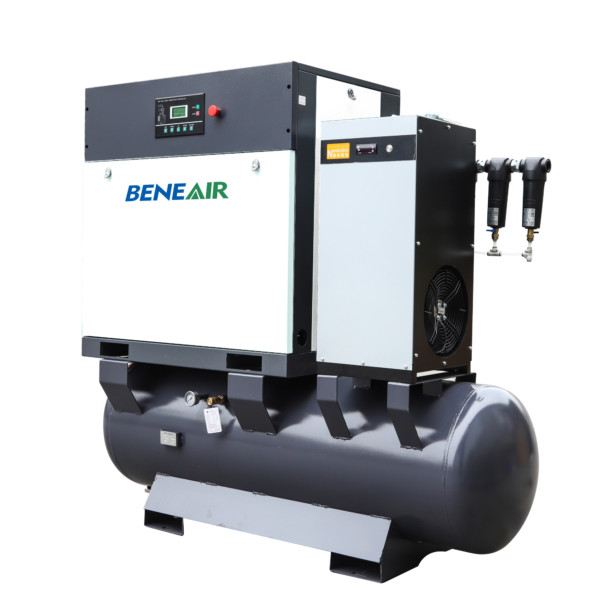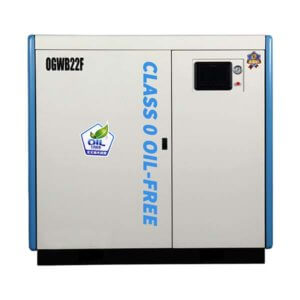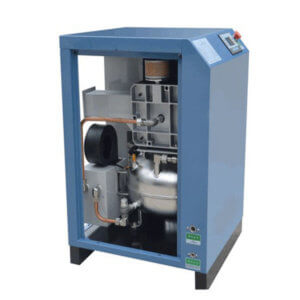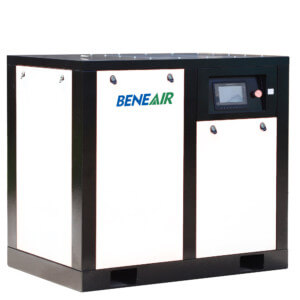Contents
Rotary screw compressors are mechanically sound machines, but they can experience vibration problems just like any other type of compressor. There are a variety of potential causes of compressor vibration, so it’s important to troubleshoot the issue correctly to get your machine running smoothly again.
What cause your compressor to vibrate drastically
What cause your compressor to vibrate drastically
Mounting Bolts:
If your compressor is mounted to a concrete pad, check for any that have become loose. This may be because the bolt holes have been worn from frequent vibration or thermal expansion and contraction. Just replace these bolts with new ones and tighten them securely.
Vibrating Cylinders:
Generally speaking, your machine shouldn’t be vibrating more than about 1 inch at most at its maximum speed. If there’s more movement than this, you should either have it looked at by a qualified technician or try balancing the rotor yourself if you’re comfortable doing so.
Insufficient Lubrication:
Any time you run an air compressor for extended periods without lubrication oil in the system, it’s going to cause significant damage over time. The lubrication oil works as a cushion between the moving parts and helps them operate smoothly without stripping each other of their protective coatings. If your compressor vibrates while running, it may be due to insufficient lubrication.
Rotor Vibration:
Rotor imbalance or misalignment is one of the most common vibration causes in rotary screw air compressors. This can typically be caused by wear and tear over time, but some things can contribute to this, such as unevenly torquing bolts when assembling or using steel on steel components (seal screws). You can try balancing your rotor yourself if you know what you’re doing or have a technician do it for you.
Crankshaft:
If you’re experiencing extreme vibration and you know it’s not due to a balancing issue or some other mechanical problem, the crankshaft may need to be replaced. If this is the case, it’s best to have a technician look at your machine so they can determine if it needs new bearings as well.
Pulleys and Flywheels:
If you have a vibration from your pulley or flywheel, it could be due to a loose counterweight. Tighten this up and see if the problem is resolved. If not, try balancing the flywheel on your own or bring in a technician.
Rotor Bearing:
A common issue with rotary screw compressors is the failure of the bearings around the rotor shaft. This can result in a loud sound while running, which will worsen over time. Sometimes these become so out of balance that they cause significant damage to the compressor’s body – an expensive repair requiring replacement of parts such as end covers and bearing housings. Even more worrisome is that bearing failures can lead to blade breakage and injury from flying pieces of metal shrapnel throughout your work area.

Troubleshooting Guide for Rotary Screw Compressors
Troubleshooting Guide for Rotary Screw Compressors
- If your compressor is vibrating severely, you should first turn it off and make sure all employees exit the area immediately. This keeps them safe from potential injuries as debris gets thrown around by the rotors.
- Assess damage to enclosures, housings, or any other part of your machine that may have been affected by vibration over time. If this has happened, you should consult a qualified technician before operating your unit again. Otherwise, further damage could occur and cause safety concerns for your staff and property (even surrounding areas if the unit isn’t vented correctly).
- Make sure there aren’t any loose objects rolling around inside your machine. These can be a cause of additional vibration.
- Inspect bolts, nuts, and screws to ensure they’re all tightened securely. This will help reduce vibration.
- Check the lubrication oil level in your unit and add more as necessary.
- If you have a rotor imbalance or misalignment, try to correct it by balancing the rotor yourself or taking it to a technician.
- If the crankshaft is the source of your vibration, it may need to be replaced – consult with a technician to see if this is necessary.
- Inspect pulleys and flywheels for loose counterweights and tighten them as needed.
- If bearings around the rotor shaft are worn, this could contribute to vibration, and you may need to replace the bearings.
- If bearings are already damaged, further damage will occur if the operation continues – consult with a technician for repairs.
- Check the vacuum level behind your compressor if it is cycling on and off frequently or running but producing low pressure in your system.
How to differentiate whether the air compressor’s vibrations are normal or abnormal?
How to differentiate whether the air compressor’s vibrations are normal or abnormal?
Normal vibrations
- When the air compressor’s routine work is started, if there are no unusual circumstances such as an instant start-up on the equipment rack, the chassis is not loose, and there is no rotational unbalance of the crankshaft. It should start with a low-frequency vibration that gradually decreases.
- If the air compressor is in a good lubrication state, there will be no abnormal noise, no leakage, and the bearings are in good condition.
- When the air compressor is running under light load conditions, it should emit noise from the flywheel.
- When the air compressor has been running for a long time under a heavy load, the noise will increase, and eventually, vibration will occur.
Abnormal vibrations
- If the air compressor starts with an abnormal vibration, it is possible that the rotor imbalance or misalignment has occurred.
- If abnormal noise, leakage, and the bearings are worn, the crankshaft is worn.
- When the air compressor has been running for a long time under a heavy load, and there is a sudden increase in noise, the bearings may have failed.
- If the air compressor cycles on and off frequently or runs but the system’s pressure is low, it may be due to a high vacuum.
If there is abnormal vibration, you should consult a qualified technician for service before operating the unit again. The technicians can help identify the causes of the beat and recommend necessary repairs. By following the tips provided in this article, you can help reduce the likelihood of abnormal vibration.










Leave A Comment